Large resources enrich Koniag lives
From majestic Kodiak brown bear to a 100-year granite quarry Alaska Native Claims – October 12, 2021
Last updated 1/6/2022 at 2:17pm
The Koniag Inc. region covers the Kodiak Archipelago, a group of islands off the southern coast of mainland Alaska better known for their enormous brown bears than vast mineral potential.
The Alutiiq people that arrived on Kodiak, Afognak, and surrounding islands more than 7,500 years ago were skilled mariners who were deeply connected to the ocean for food and supplies.
Over the millennia, these roaming seafarers settled into whaling and fishing villages that sheltered extended families living in large, multi-roomed sod houses. Developing more proficient hunting tools, catching more fish, and learning better techniques for processing and storing foods, the Alutiiq began organizing community labor and formed chiefdoms.
To maintain their high standing and obtain goods not readily available near their villages, the chiefs would travel around the Kodiak Archipelago and to the Alaska mainland to visit and trade.
These journeys were often made in huge open skin boats loaded with the rich resources Kodiak had to offer – hard black slate, red salmon, bear hides, and spruce root – to be traded for mainland goods such as antler, ivory, horn, animal pelts, and exotic stone.
Peaceful trade and diplomacy, however, were not always the intent of these quests. Sometimes, chiefs initiated raiding parties, traveling hundreds of miles to avenge insult and invade rival communities for plunder and slaves.
During the dark winter months, the bounty of summer harvest, trade, and conquest was invested in the community through public displays of chiefdom prowess.
The winter months were also a time for celebration through festivals organized by priests and shamans.
By honoring the events of the year, displaying their wealth through lavish feasts and gift-giving, honoring ancestors, and thanking the spirit world, the Alutiiq elite preserved their status and provided for the economic, social, and spiritual needs of their communities.
Today, the Koniag regional and ANCSA village corporations in the Kodiak region serve in much the same role as the traditional chiefdoms – working for the economic, social, and even spiritual health of its shareholders.
"Koniag achieves financial growth, honors our culture, protects our lands, advocates for our communities, and makes a meaningful impact on our Koniag family," according to the regional corporation's website.
Alutiiq values guide Koniag
Rooted in Alutiiq values and guided by its more than 3,800 shareholders, Koniag's business strategy has evolved to meet challenges and to take advantage of arising opportunities.
To ensure shareholders, vendors, and business partners understand Koniag business strategy and goals, its board of directors defined five core values:
• Planning for the long term – Koniag intends to be a "forever" corporation through land stewardship, stakeholder education, shareholder benefits, and prudent investment of financial assets.
• Honoring its heritage and culture – knowing that individuals with a strong cultural identity have a sense of belonging and positive self-esteem, Koniag is committed to sustaining its Alutiiq culture and language.
• Embracing diversity – from shareholders living in Kodiak villages to those in large cities around the world, Koniag embraces its diversity and recognizes that as a source of strength.
• Being open and honest – As a corporation, Koniag's foundation is built on long-term business relationships based on openness, honesty, and mutual trust.
• Having pride in its work – cherishing a reputation built on an ethical foundation, Koniag enjoys hard work and takes work seriously but strives to be humble enough not to take itself too seriously.
• Sharing the catch – Koniag values the individual contribution of employees and stakeholders and strives to enrich the lives of shareholders and their families through robust benefits and services.
"The Alutiiq value of caring for our community is embedded in everything that we do – every service, decision, and investment is a reflection of our commitment to living our culture," the corporation explains. "Koniag will continue to celebrate our traditions and values, protect our lands, advocate for our communities, and enrich the lives of our shareholders, descendants, and employees at every turn."
The corporation's investments range from real estate holdings, resource development, and business operations that include oversight of over a dozen subsidiaries.
"Our priority right now is to grow our business through supporting our existing operating companies, including those in resource development," Koniag President Shauna Hegna told Data Mine North.
These companies provide a wide range of services from premier Kodiak brown bear viewing to the sophisticated industrial services offered by Glacier Services Inc. and Dowland-Bach.
GSI is a leading provider of automation services for industrial purposes, including oil producers on Alaska's North Slope, and Dowland-Bach supplies stainless steel materials and control systems for companies around the world.
"Together they coordinate to offer the only fully vertically integrated supplier of automation and controls systems in Alaska," Hegna said. "GSI and Dowland-Bach offer local expertise to Alaska partners in the mining industry and beyond."
Chromite-rich Border Fault
While the Kodiak Archipelago is not renowned for its mineral potential, this does not mean the Koniag region is bereft of mineral prospects. For example, chromite, a mineral that has been deemed critical to the United States, has been historically identified in five mafic or ultramafic complexes on Kodiak and Afognak islands. Two other critical mineral commodities – tin and platinum group metals – and gold have also been found on the islands.
These mineral occurrences are primarily found along the Border Range fault, a major structure known to host chromite-PGM-gold deposits on the Kenai Peninsula that runs across the entire northwest margins of Afognak and Kodiak islands.
The U.S. Bureau of Mines investigated the chromite occurrences and deposits on Kodiak and Afognak as part of a larger 1980s program aimed at identifying domestic sources of strategic and critical minerals.
The Halibut Bay area at the western end of Kodiak Island is the most intriguing chromite-bearing section along Kodiak Island's section of the Border Range fault. Bureau of Mines identified 11 surfacing chromite occurrences over a roughly 10-square-mile region to the west of Halibut Bay. From surface observations, Bureau of Mines geologists Jeff Foley and James Barker estimated that this area contains at least 210,000 short tons of chromium oxide based on observations at the surface.
Samples collected from Halibut Bay also contained small amounts of gold, platinum, palladium, copper, nickel, and cobalt.
The Halibut Bay chromite occurrences, however, are found within the Kodiak National Wildlife Refuge, a large area set aside to conserve habitat for the distinct Kodiak brown bear population.
In fact, most of the chromite and other mineral occurrences identified so far along the Afognak and Kodiak islands section of the Border fault fall within Kodiak bear protection areas.
Koniag mining
While much of the Kodiak Archipelago is preserved for the iconic bears, there are areas available for development, and Koniag has one mining operation of its own – the Kodiak Granite Quarry, which has provided quality granite to coastal Alaska construction projects.
"Material from the quarry has been used for the Chignik Ferry Dock, the Homer Spit, the Seward Breakwater project, the Port Lions Breakwater and Ferry Dock projects, and more," Hegna told Data Mine North.
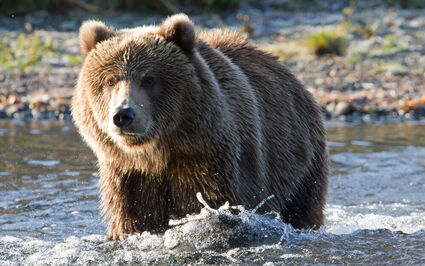
Koniag Inc.
Much of the Kodiak Archipelago is set aside as a wildlife refuge for the genetically distinct Kodiak brown bear.
With a large deposit of granitic rock suitable for marine and road construction, Kodiak Granite Quarry has the capacity to produce 250,000 tons of armor stone, riprap, crushed aggregate, and other granite products per year for a century.
"With ice-free water and expansive infrastructure, the quarry can supply quality product year-round, and has an estimated life of over 100 years," the Koniag President said.
The ANCSA regional corporation also owns lands that may have mineral potential, including a block on the northwest side of Kodiak Island that is crossed by the Border Range fault. Koniag is open to responsible mineral exploration on its lands.
"Many of our shareholders live on Kodiak Island, and first and foremost we strive to be good stewards of our lands," said the Koniag president. "With that said, we are always open to opportunities to explore for minerals or oil and gas."


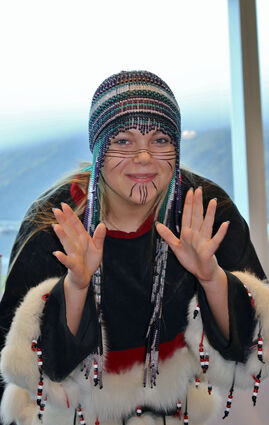
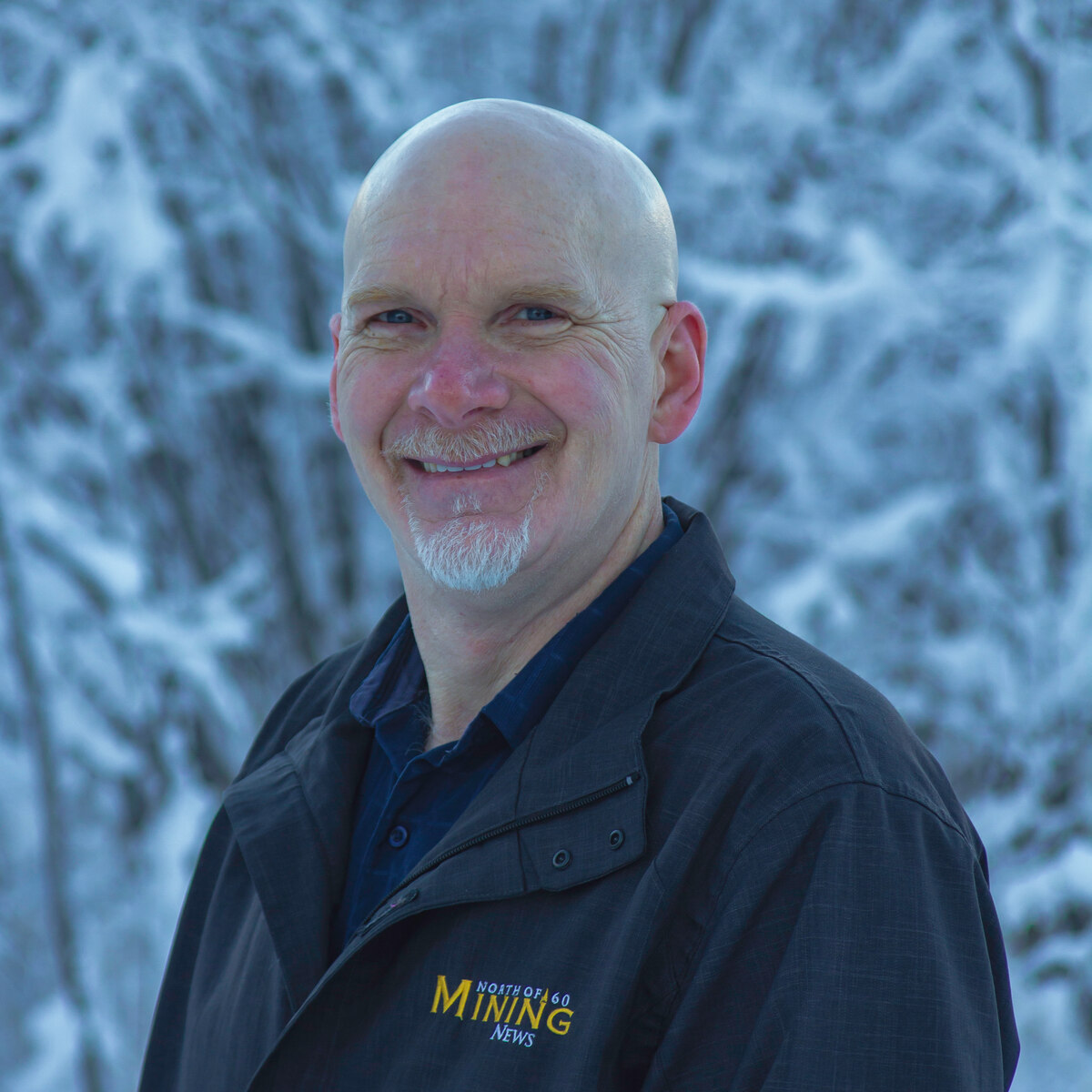





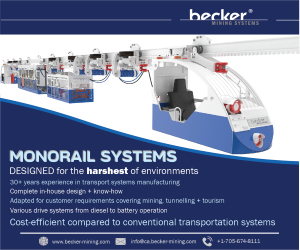
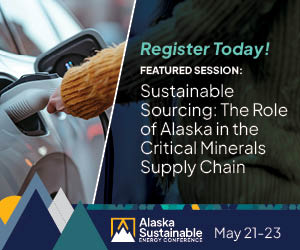
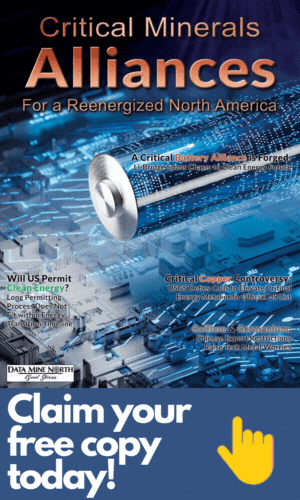
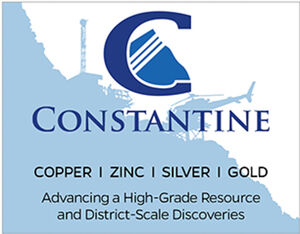
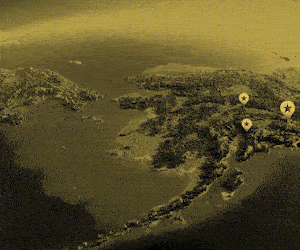
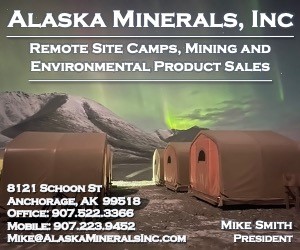
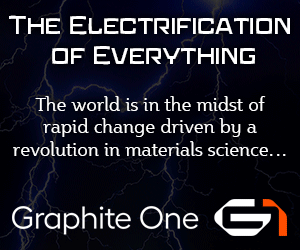
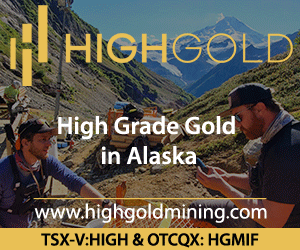
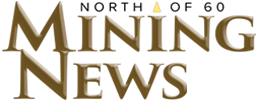
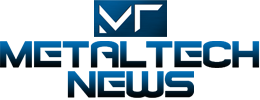
Reader Comments(0)